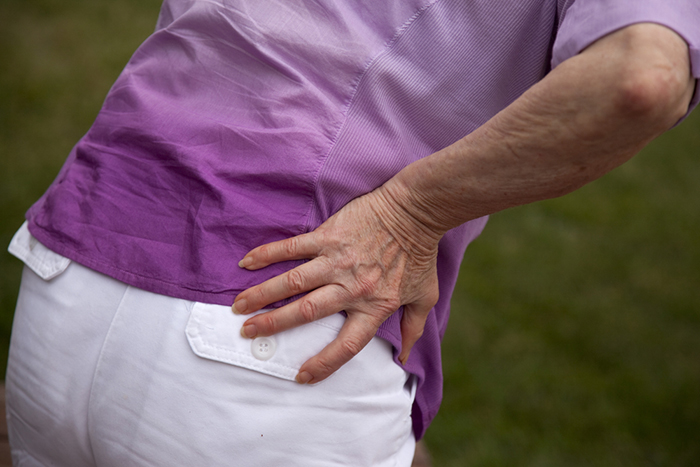In the time leading up to your hip surgery, you’ll be supported by our friendly team led by your consultant Mr Nirav Shah. You may be feeling a mixture of emotions, from excitement to apprehension. Rest assured, we’re here to answer any questions and make sure you have a seamless experience.
Preoperative assessment
A week or so before your surgery, we’ll arrange a preoperative evaluation with a nurse. During this appointment, we’ll review your preoperative screening questionnaire and carry out some routine checks.
Our specialist nurse will take a blood test, a swab test for MRSA and an electrocardiogram (ECG). If you have a pre-existing cardiac or lung condition, we’ll organise a chest X-ray too.
If your haemoglobin levels are low, it can increase your risk of needing an emergency blood transfusion post-surgery. To mitigate this outcome, we will boost your haemoglobin levels through medication or a blood transfusion.
If you have a pre-existing medical condition that requires specialist care, you may need to see an anaesthetist for your assessment.
Your anaesthetist will assess whether you’ll need specialist support following your surgery. They may recommend carrying out your hip replacement at a hospital with a high dependency or intensive therapy unit, for example.
Getting your body ready for surgery
By making some positive changes to your lifestyle and general health, you can improve your chances of a smooth recovery.
Increase your activity levels
Healing after surgery puts extra demand on your heart and lungs. Improving your fitness will help them to better cope with this increased demand and aid your recovery.
Any activities that leave you feeling slightly out of breath three or more times a week will be beneficial. Just a few minutes of walking, cycling, swimming or gardening each day can make a positive difference.
Stop smoking
If you smoke, you’ll have a higher risk of complications following your surgery. If you’re able to stop before your hip replacement, it can dramatically improve your lung function and wound healing.
If you need support or advice on quitting, please contact your GP or perioperative team.
Reduce your alcohol intake
Alcohol reduces your liver’s ability to produce the building blocks needed for healing. Stay within or below the UK Chief Medical Officers’ alcohol limits to improve your body’s ability to heal following your operation.
Building your support network
If you need help with lifts to and from the hospital from friends or family, let them know as soon as you can. Check visiting times in advance, so you can arrange to see a friendly face following your operation.
If you’re suitable for our enhanced recovery programme, you’ll return home within 24 hours of your surgery. 90% of patients are discharged within two days.
If you live alone, you may want to invite someone to stay for a few days or arrange regular visits. Alternatively, we can recommend a specialist convalescent home where you’ll receive dedicated support.
Preparing your home
You may need to make some changes at home to help you during your recovery. It’s worth planning these early on in case you need help moving furniture, or you need to buy or borrow any equipment.
Here are some steps that will help you to prepare your home for your hip replacement:
- Make sure all your essentials are at arm height, so you don’t need to bend down or stretch up to reach them
- You may want to adjust the height of your bed or favourite chair so you can get in and out easily
- Remove any trip hazards from around your home and make sure you have enough space to move around with a walking frame or crutches
- The hospital will loan you a walking frame or crutches, but you may want to invest in some grab handles throughout your home
- A long-handled shoehorn will help you to put on your shoes without needing to bend down
- Find a soft bag that you can use to carry things from room to room hands-free
- If you don’t already have some, invest in a pair of flat shoes with good grip to wear at home
- Get on top of your housework, and, if necessary, arrange for someone to help with cleaning during your recovery
- Stock up on supplies and plan your meals and where to eat them in advance
- Make sure you have a supply of over-the-counter pain killers and plenty of your usual medication
As you go about your daily routine, think about how it could be impacted by your surgery and walking frame or crutches. If you have any concerns, we are always here to offer advice.
Relaxing before your operation
You’ll probably have a lot to think about the day before your surgery, so you may want to pack your hospital bag a few days in advance. In the meantime, it can be helpful to prepare a list of things to include.
Here are some suggested items to add to your list:
- Your hospital admittance letter
- Mobile phone or cash for the payphone
- Medications
- Good reading material
- Healthy snacks
- Pocket money for the shop
- Toothbrush and toothpaste
- Shower gel and shampoo
- Skincare products
- Knee-length dressing gown
- Pair of non-slip slippers
- Compression stockings
- Comfy outfit to wear home
- Contact details for friends and family
- Contact details for your GP
The day before your surgery
Try to plan a relaxing evening the night before your surgery. You’ll need to take a bath or shower, and, if necessary, remove any nail polish and body piercings.
Stop eating and drinking by midnight to make sure your stomach is empty during your hip replacement.
Allow plenty of time to get to the hospital on the morning of your surgery. Please avoid wearing any make-up to your appointment. (This reduces the potential spread of bacteria and helps us to assess your blood circulation.)
If you feel unwell in the days before your operation, please contact us as soon as possible. We may need to rearrange your surgery and allocate your appointment to another patient.
We hope this information helps you to prepare for your hip replacement. You’ll receive personalised advice at your consultation and preoperative assessment.
If you have any questions or concerns, please don’t hesitate to contact Mr Shah’s secretary on 01903 707373.






